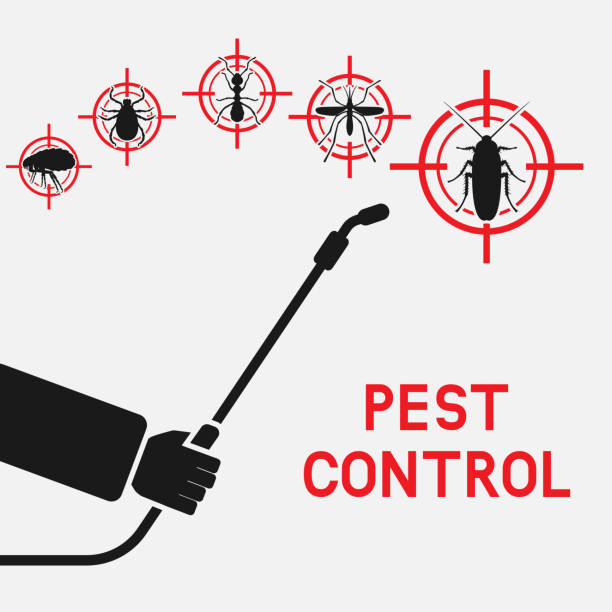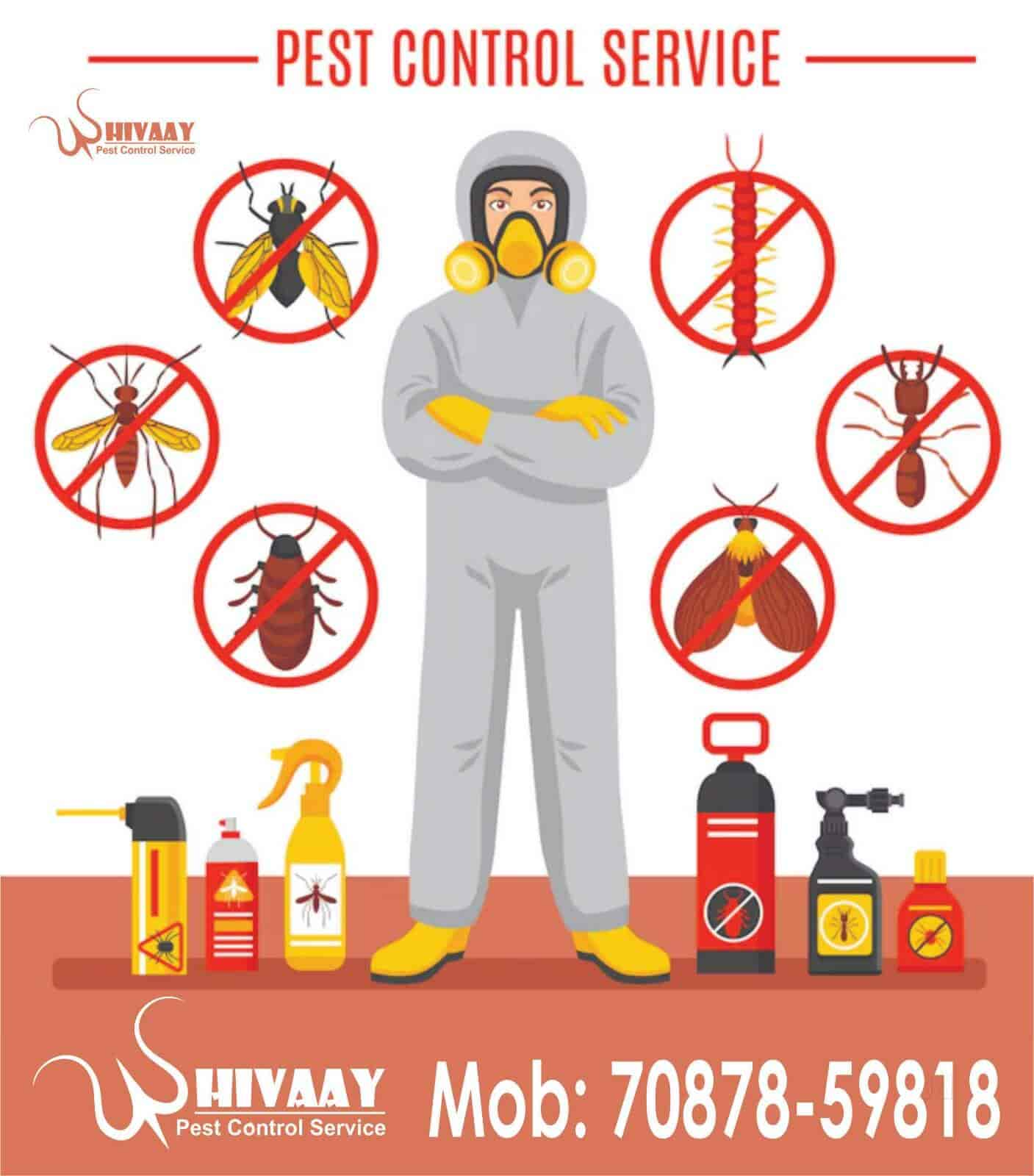Safe and Trusted Bug Control for Lasting Protection
Reliable insect administration calls for a diverse method that stabilizes environmental integrity with the requirement for efficient pest suppression. The subtleties of these methods may not be right away clear, triggering a more detailed exam of the practices that can lead to sustainable insect control outcomes.
Comprehending Parasite Control Techniques
Insect control incorporates a range of methods targeted at handling and removing unwanted insects and rats that can endanger both health and wellness and residential or commercial property. Recognizing these approaches is vital for efficient bug management.
The main categories of insect control techniques consist of mechanical, organic, and chemical techniques. Mechanical methods entail physical barriers and traps to avoid pest entry and capture unwanted varieties. Making use of displays on home windows or using sticky traps can significantly lower bug populations without presenting damaging materials - exterminator coquitlam.

Chemical insect control is usually one of the most acknowledged method, using chemicals to remove parasites. These chemicals can be reliable yet have to be used with caution to prevent negative results on non-target varieties and the environment.
Advantages of Eco-Friendly Solutions
Just how can environmentally friendly remedies transform bug control techniques? The adoption of green bug control methods uses numerous benefits, significantly improving the performance and safety and security of bug monitoring (exterminator coquitlam). To start with, these services utilize natural components, reducing the reliance on hazardous chemicals that can position dangers to human wellness and the atmosphere. This shift not only secures families and animals yet additionally minimizes the potential for soil and water contamination.

Another advantage is the favorable influence on local biodiversity. Eco-friendly remedies are created to target particular insects while protecting advantageous pests and wild animals, promoting a well balanced ecological community. This strategy straightens with the growing customer demand for lasting methods, boosting the online reputation of bug control carriers.
Integrated Insect Monitoring Methods
The implementation of eco-friendly options naturally leads to the adoption of Integrated Insect Monitoring (IPM) approaches, which better improve insect control efficiency. IPM is an all natural technique that incorporates multiple techniques to manage pest populaces while minimizing environmental influence. This method stresses the use of organic, social, mechanical, and chemical controls, ensuring a balanced and lasting technique of parasite monitoring.
One essential facet of IPM is the extensive analysis of pest activity and ecological problems. By keeping track of parasite populations and determining their life process, specialists can carry out targeted treatments that disrupt the bug's environment or lifecycle, lowering reliance on chemical pesticides. Additionally, cultural methods such as plant rotation and habitat manipulation can substantially lessen pest establishment and recreation.
Another crucial element is the use of biological control agents, such as useful pests or microorganisms, which can naturally pest control near me subdue parasite populaces. When chemical applications are essential, IPM focuses on the usage of low-risk pesticides and uses them precisely, decreasing direct exposure to non-target microorganisms and human beings.
Including IPM strategies not only improves pest control effectiveness but also advertises a more secure community, lining up with the expanding demand for lasting methods in insect monitoring.
Safe Practices for Property Owners
Comprehending the significance of secure techniques in pest control can equip homeowners to efficiently handle insect problems while safeguarding their health and the environment. Carrying out non-toxic methods and preventative measures is crucial in decreasing direct exposure to hazardous chemicals.
Property owners need to first assess their setting for problems description that draw in bugs, such as standing water, food, and clutter waste. Frequently cleansing and sealing entry points can hinder insects from attacking the home. Making use of natural deterrents, such as crucial oils or diatomaceous earth, can give effective options to chemical pesticides.
When chemical therapies are necessary, house owners need to choose items that are specifically classified as safe for property usage. It is necessary to adhere to application guidelines diligently to prevent overexposure. Additionally, making use of targeted therapies in areas where bugs are recognized, instead of blanket splashing, can considerably lower chemical use.
Lastly, preserving open interaction with insect control specialists is crucial. Home owners need to imp source make inquiries concerning the safety and security of products utilized and request green alternatives whenever feasible. By embracing these safe practices, property owners can produce a healthier living environment while effectively managing parasite concerns.
Tips for Long-Term Defense
Developing a bug administration method that highlights lasting security can considerably enhance the performance of the risk-free practices formerly talked about. To achieve this, property owners must implement normal evaluations of their residential or commercial property, focusing on concealed locations such as attic rooms, cellars, and crawl spaces. Early discovery of pest activity is important in avoiding problems from taking hold.
In addition, preserving a tidy atmosphere is essential. This includes appropriate food storage, without delay cleaning spills, and consistently disposing of rubbish. These techniques decrease attractants that draw insects right into the home. Additionally, securing entry points, such as splits around doors and windows, can successfully obstruct potential bug access.
Landscape design needs to also be thought about; maintaining plants cut and keeping a range between greenery and the home reduces hiding areas for bugs. Making use of all-natural deterrents, such as essential oils or diatomaceous earth, can additionally discourage infestations without resorting to severe chemicals.
Finally, working together with a specialist parasite control service for routine analyses can give an added layer of protection. These specialists can supply customized referrals and advanced treatments, making sure that your home continues to be shielded versus bugs in the long-term.
Final Thought
In conclusion, reliable and secure parasite control needs a diverse method that emphasizes eco-friendly methods and incorporated insect management. By executing all-natural deterrents, performing regular evaluations, and preserving proper hygiene, home owners can dramatically minimize insect populaces while safeguarding advantageous pests and the atmosphere. Cooperation with expert pest control solutions improves the performance of these methods, guaranteeing customized services that give enduring protection and assurance against future problems.
Effective parasite management calls for a multifaceted technique that balances environmental stability with the need for efficient parasite suppression. The fostering of environmentally friendly bug control methods uses numerous advantages, substantially enhancing the efficiency and safety and security of insect administration.The execution of green options normally leads to the fostering of Integrated Pest Administration (IPM) approaches, which further enhance bug control efficacy. exterminator coquitlam. By keeping an eye on parasite populations and identifying their life cycles, professionals can apply targeted treatments that disrupt the insect's habitat or lifecycle, lowering reliance on chemical pesticides.In conclusion, reliable and safe insect control needs a diverse approach that highlights eco-friendly techniques and incorporated parasite monitoring